Scientific Commitee
SCIENTIFIC COMMITTEE
The scientific committee (S.C.) includes top conservation scientists from around world who have contributed to the design of the conference programme and topics. The S.C. will also review the abstracts for oral presentations and posters.
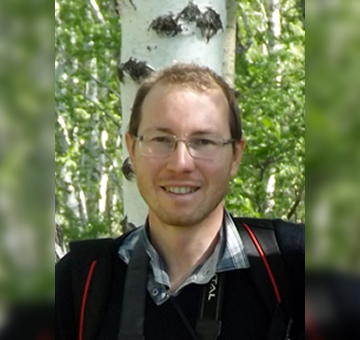
Prof. Thomas ABELI
University of Roma Tre Prof. Thomas ABELI is Associate Professor of Conservation Biology and Botany at the University of Roma Tre (Italy). He is a plant ecologist working in plant conservation and a red listing expert. He has been a member of the IUCN Conservation Translocation Specialist Group since 2013. He has been involved in several plant translocation projects in northern Italy. He has published over 50 scientific papers and co-authored the Italian Guidelines for Plant Translocation. Thomas is currently working on the link between ex situ and in situ conservation, translocation in agricultural landscapes and plant de-extinction.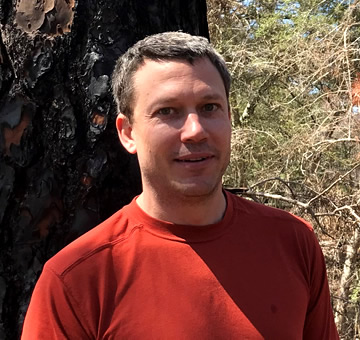
Prof. Matthew ALBRECHT
Missouri Botanical Garden's Centeris an Associate Scientist in Conservation Biology at the Missouri Botanical Garden’s Center for Conservation and Sustainable Development (USA). He is also an Honorary Adjunct Professor in the Department of Biology at Washington University and the University of Missouri-St. Louis. His research interests include the restoration ecology of rare species and degraded habitats, understanding the drivers of rare plant population dynamics, and the implications of seed traits for conservation and restoration. He works closely with governmental agencies to develop management solutions for threatened plant species. He has authored or co-authored several dozen articles and book chapters, including the Center for Plant Conservation’s Best Practice Reintroduction Guidelines. In 2019, Matthew received the Star Award from the Center for Plant Conservation for his analysis and synthesis of long-term reintroduction projects.
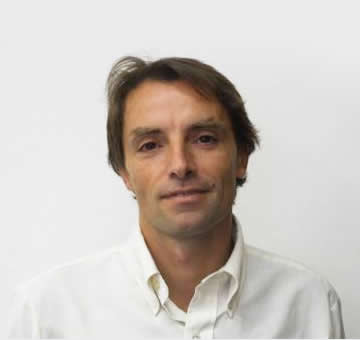
Prof. Fabio ATTORRE
University of Rome "La Sapienza" is associate professor of Ecosystem Approach to the Conservation of Biodiversity at the University of Rome "La Sapienza" and Director of the Botanic Garden of Rome. He has a 15 year long experience in environmental cooperation programs in several biodiversity hotspots of the world (Galapagos Archipelago, Socotra archipelago, Albania, South Africa, Mozambique, Zimbabwe, Papua New Guinea). His main research field is the application of spatial models to assess the conservation status of species and habitats, to support the management of protected areas, and to evaluate the impact of climate change and alien species on ecosystems.
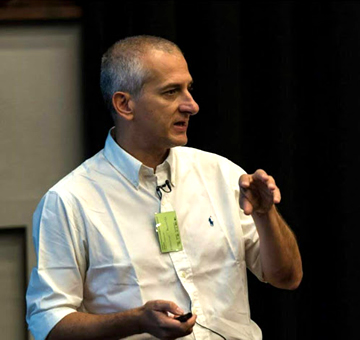
Prof. Gianluigi BACCHETTA
University of Cagliariis currently Full Professor at the Department of Life and Environmental Sciences of the University of Cagliari (Italy) and Adjunct Professor at the University of Tehran (Iran). He is also Director of the HBK (Hortus Botanicus Karalitanus) of the University of Cagliari. Since 1991, he has been working on geobotanical and conservation biology studies of the Mediterranean biota, plant diversity of islands, andphytoclimatology and phytogeography. He has published about 500 scientific papers, most of these in international journals. He has collaborated with Italian and international editors on 21 scientific books. He is principal investigator of various international projects (LIFE+, Interreg, ENPI, ENI, Erasmus+) financed by the European Union. From 2003 to 2016 he was director of the Conservation Centre of Biodiversity (CCB) of the University of Cagliari. He is currently the president of the GENMEDA network.
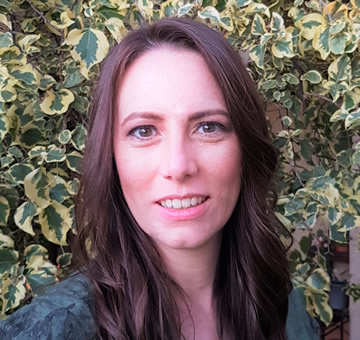
Dr. Lucy COMMANDER
Australian Network for Plant Conservationworks with the Australian Network for Plant Conservation (ANPC), and is based in Perth, Australia. She completed a BSC (Hons) in Horticulture and a PhD, both at The University of Western Australia. After her PhD graduation, she spent eight years based at Kings Park and Botanic Garden researching seed ecology in Western Australia’s arid and semi-arid regions, to improve seed use in restoration in the mining industry. Subsequently, she was the Project Manager and Lead Editor of the third edition of the Australian Network for Plant Conservation’s Guidelines for the Translocation of Threatened Plants in Australia, which was published in 2018, and organised three Translocation Workshops in Australia. Dr Commander has also published a number of peer-reviewed publications, including several highly cited reviews. An experienced conference organiser, Dr Commander has been on the organising committee of several local, national and international conferences, and also organises and facilitates workshops to enable knowledge transfer between scientists and practitioners.
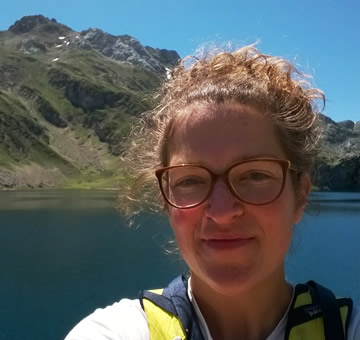
Dr. Sarah DALRYMPLE
Liverpool John Moores Universityis a Senior Lecturer in Conservation Ecology at Liverpool John Moores University, (UK). She is a plant ecologist focusing on threatened species and responses to global threats such as climate change, and on the efficacy of conservation interventions. Sarah has undertaken various practical conservation initiatives including reintroduction, has reviewed threatened plant translocations, and contributed to policy documents, including co-authoring the IUCN Reintroductions Guidelines (2013) and the Scottish Code for Conservation Translocations (2014). Sarah is currently working in the conservation and forestry sector to find cross-disciplinary commonalities, opportunities to use translocations as bioassays of environmental change, and to identify use of assisted colonization to minimize biodiversity loss due to climate change.
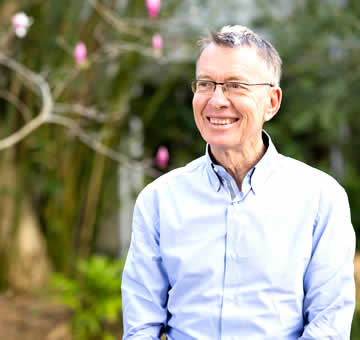
Prof. Kingsley DIXON
Curtin Universityis a biologist and Professor at Curtin University (Australia), Associate of the Missouri Botanical Garden (USA) and a Visiting Professor at Kings Park and Botanic Garden (Australia). He specialises in the conservation and restoration sciences with an emphasis on rare and threatened species. He was named 2016 Scientist of the Year for Western Australia for services to conservation.
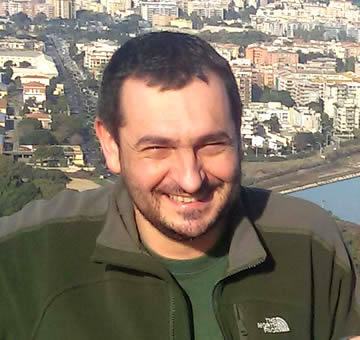
Prof. Giuseppe FENU
University of Cagliariis Associate Professor of Plant Diversity (Systematic Botany) at the Department of Life and Environmental Sciences of the University of Cagliari (Italy). His main interests are the conservation of plant diversity of the Mediterranean islands, the main drivers that determine the distribution patterns of endemic plants in these environments; the interactions, both at a specific and population levels, with environmental factors related to the anthropic presence including the on-going global change. Since 2004, he has participated in several national and international projects focused on plant diversity conservation. In particular, he has been working on in situ conservation studies of the most threatened endemic plants of Sardinia and, more in general, on the Mediterranean threatened flora.
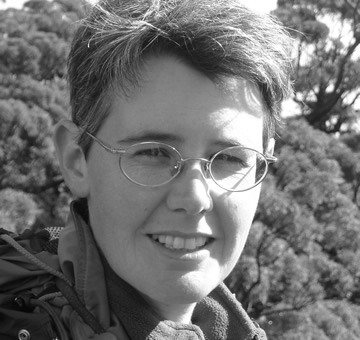
Dr. Sandrine GODEFROID
Meise Botanic Gardenis Conservation Officer at Meise Botanic Garden (Belgium). As a plant ecologist, she has always worked on bridging the gap between science and management. Her areas of interest include the restoration of plant communities and habitats, ex-situ conservation techniques and best practice in translocations of endangered plant species. She has published more than 50 papers in international journals, and her work has been acknowledged by 5 scientific awards. Her review on the drivers of plant reintroduction success published in 2011 has been an inspiration worldwide and is considered as one of the most influential papers in the field of reintroduction biology in recent years.
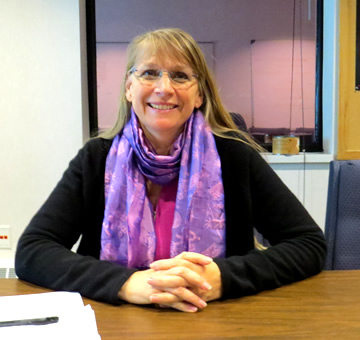
Dr. Joyce MASCHINSKI
Center for Plant Conservationholds a joint appointment as the Director of Plant Conservation for San Diego Zoo Institute for Conservation Research and V.P. of Science & Conservation for the Center for Plant Conservation (USA). In these capacities, she develops, oversees, and synthesizes plant conservation research related to seed banking, habitat restoration, reintroduction, and preventing rare plant species’ extinction. Joyce received her B.S. and Masters degrees at the University of Arizona in Tucson, Arizona, and her doctorate in plant ecology from Northern Arizona University in Flagstaff, Arizona. With colleagues at The Arboretum at Flagstaff in Flagstaff, AZ and Fairchild Tropical Botanic Garden, Miami, FL. Dr. Maschinski has conducted over 87 reintroductions of 26 endangered plant species in desert and tropical ecosystems. She has published widely on plant reintroduction and spearheaded Center for Plant Conservation publications: Plant Reintroduction in a Changing Climate and CPC Best Plant Conservation Practices to Support Species Survival in the Wild.
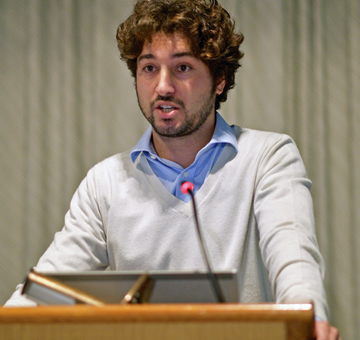
Dr. Simone ORSENIGO
University of PaviaMSc in Natural Sciences, University of Milan (Italy) in 2010. PhD in Experimental Ecology and Geobotany, University of Pavia (Italy) in 2014. He is currently post-doc fellow at the Department of Earth and Environmental Sciences of the University of Pavia. His research is focused on the conservation of plants threatened by anthropogenic pressures (i.e. habitat destruction, climate change, etc.). He studies biology and ecology of rare and threatened plant species applied to translocation science, from lowland freshwater environments to alpine habitats. He is member of the Editorial Board of the journals Aquatic Conservation: Marine and Freshwater ecosystems and Italian Botanist and secretary of the Nature Conservation Section of the Italian Botanical Society.
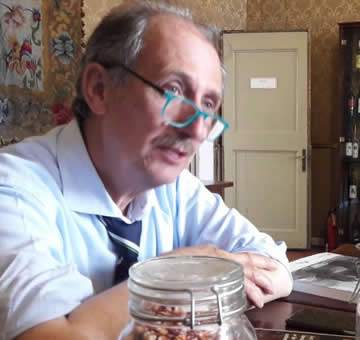
Prof. Graziano ROSSI
University of Paviais full-professor of Applied Botany and deputy-Director of the Department of Environmental Sciences of the University of Pavia (Italy). He is also head of the Seed Bank of the University of Pavia. His research and conservation activity focus on alpine plants and lowland wetland-dependent plants. He led several international seed banking projects in collaboration with the Millennium Seed Bank of the Royal Botanic Garden, Kew and collaborated with the Global Seed Vault and other Institutions for the recovery and conservation of local crop varieties and crop wild relatives. He pioneered the field of restoration ecology in Italy with several restoration projects, mostly in abandoned quarries. Moreover, he contributed to the conservation translocation of several threatened species in northern Italy and coordinated the development of the Italian Guidelines for Plant Translocation.
Organising Commitee
ORGANISING COMMITTEE
The 1st International Plant Translocation Conference is organised by the Department of Sciences, University of Roma Tre (Prof. Thomas Abeli) in collaboration with the Department of Earth and Environmental Sciences of the University of Pavia and M.T.B. Management of Tourism and Biodiversity. The Organising Committee will welcome you at the conference venue and will assist you with any problems you might have before and during the Conference.
Prof. Thomas Abeli
(see Scientific Committee)
Prof. Graziano Rossi
(see Scientific Committee)
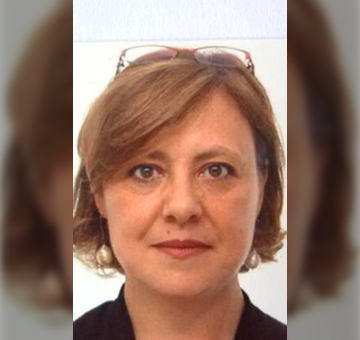
Cristina Compagno
Managing of M.T.B. Management of Tourism and Biodiversity by Elly Travel Srl in Rome, specialized in ecotourism, aims at supporting, promoting and enhancing the environmental assets, historical and cultural heritage, throughout a Sustinable Tourism, beware of their conservation and reducing negative impacts on environment. From 2005, PCO - Professional Congress Organizer specialised in the organisation and management of congresses, conferences and seminars
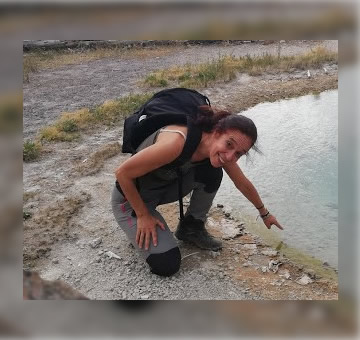
Prof. Alicia T. R. ACOSTA
is a Full Professor at the University of Roma Tre. Her research interests include vegetation patterns at different scales, effects of environmental and human-mediated drivers and the impact of biological invasions. Recently, her research has been focused on coastal dune vegetation, particularly in understanding how coastal ecosystems function and how they will respond to ongoing global environmental change. Research was carried out at multiple spatial scales, from individuals and single-site studies to continental projects.
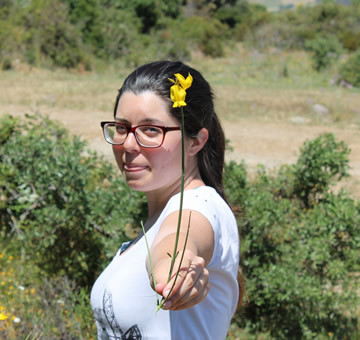
Dr. Giulia ALBANI ROCCHETTI
is a PhD student in Environmental Biology at the University of Roma Tre, where she graduated with honour in Biodiversity and Ecosystems Management. She carries out research focused on the role of Mediterranean basin archaeological sites in habitats and plant species conservation, and experimental translocation of threatened plant species.

Prof. Giulia CANEVA
is Full Professor of Environmental and Applied Botany at the Department of Science, University Roma Tre. Her research activity focuses on Mediterranean vegetation and on botany & cultural heritage conservation and enhancement. She has been involved in many national and international projects in UNESCO sites. She is author of more than 280 scientific publications and 23 books; one of them was the Grand Prix winner of the European Union Prize for Cultural Heritage/Europa Nostra Awards.
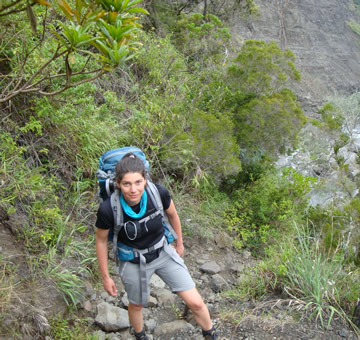
Dr. Marta CARBONI
is a plant community ecologist. Currently she is a researcher at the University of Roma Tre with a Montalcini grant for young scientists. Before that she was a Marie Curie PostDoc in W. Thuiller's lab, France, and then in M. Cadotte's lab, Canada. Research interests include the determinants of plant invasions and their impacts, as well as the assembly of communities and species co-existence in the face of global change. She has focused mainly on grasslands, Mediterranean coastal dunes and mountain environments, publishing more than 40 scientific articles. She is an editor for the journal “Diversity and Distributions”.
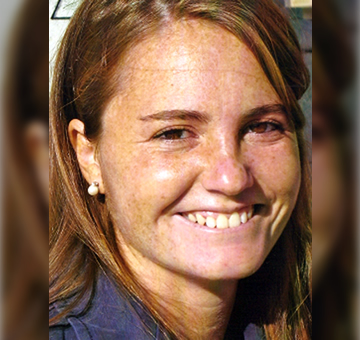
Prof. Simona CESCHIN
is Associate Professor of Botany and head of the Herbarium at the Department of Science of the University of Roma Tre. She is an expert in aquatic plants and in their use as bioindicators of water quality and for phytoremediation. Her research focuses on some carnivorous aquatic plant species (i.e. Utricularia) and invasive alien plant species (i.e. Lemna, Azolla).
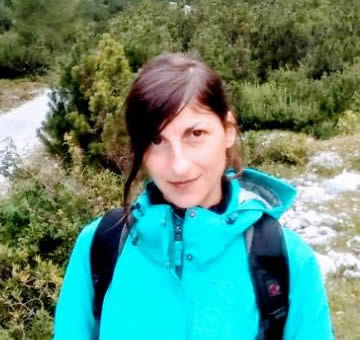
Dr. Emanuela CICINELLI
has a PhD student in Environmental Biology at the University of Roma Tre. She received her Masters Degree in Natural Sciences at the University of Rome "La Sapienza". She carries out research in the field of conservation and enhancement of plant biodiversity in archaeological areas and cultural landscapes, with particular attention to UNESCO World Heritage sites. She is an author of international publications on this topic.
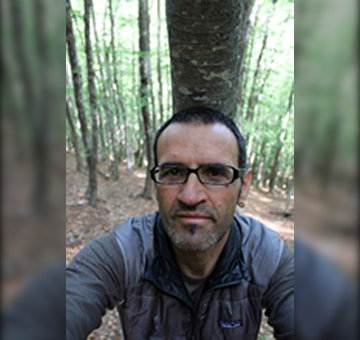
Dr. Maurizio CUTINI
graduated in Natural Sciences and carried out his PhD at the Department of Plant Biology of the University La Sapienza of Rome. Since 2002 he has been a researcher at the Department of Science of the University of Roma Tre. He is a plant ecologist working on vegetation dynamics in central and southern Peninsular Italy. He has recently focused on the study of functional traits in montane and alpine ecosystems, bioclimatic classification, the effect of land use change on plant communities, and conservation and vegetation management.
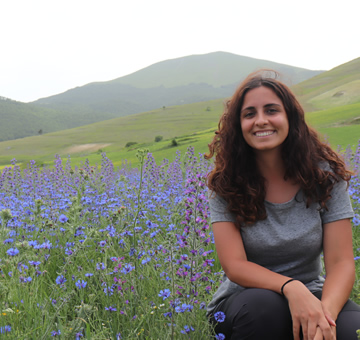
Dr. Martina D'AGOSTINO
is a PhD student in Environmental Biology at the University of Roma Tre, where she graduated with honour in Biodiversity and Ecosystems Management. She carries out research in the field of plant conservation with a focus on translocations projects. She created and developed, as part of an initiative of the Conservation Specialist Group of the Italian Botanical Society, the Italian Database of Plant Translocation (IDPlanT). She is currently working on the reintroduction of threatened arable species and as assessor for the IUCN Red List of the European Union.
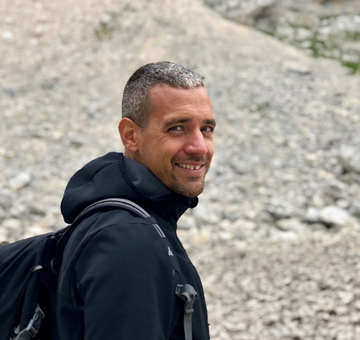
Dr. Andrea DE TOMA
is a PhD student in Biodiversity and Analysis of Ecosystem at the University of Roma Tre. His research focuses on vegetation dynamics of Central Apennines alpine and subalpine belts in the context of climatic and land-use changes, with particular attention to shrub encroachment. He graduated in Nature Conservation with honour.



